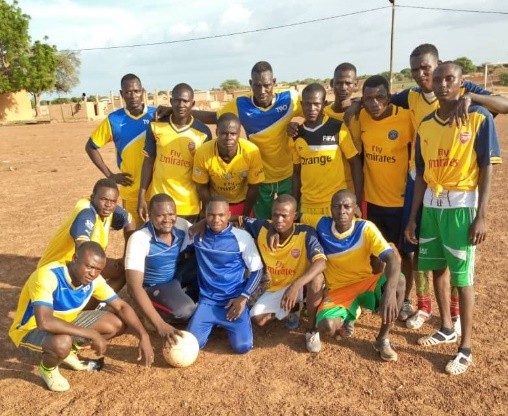Speeches Shim

August 2019 – Nestled 22 miles outside the nearest larger town of Dori, Baani is home to seven different ethnic groups. Until the emergence of violent extremist groups, these ethnic groups cohabited peacefully together. Violent extremists have targeted Fulani youth for recruitment and used historical grievances and ethnic marginalization of a minority as techniques to drive a social divide. As a result, newfound clashes between the Fulani and Djawobe communities have erupted, creating instability and fear.
As violence and tensions have surfaced, local leaders have been unable to respond to the deteriorating security situation. In response to this problem, USAID/OTI’s Burkina Faso Regional Program (BFRP) partnered with CINA Allah YIDI, a local organization, to organize an inter-ethnic soccer tournament to bring communities together to re-establish positive relations and rebuild a stronger sense of community among youth.
On July 25, 2019, the “Tournament of Hope” kicked-off at the Baani middle school. Local authorities and an estimated 600 people attended the soccer tournament. Each soccer team comprised players from Fulani, Djawobe, Mossi, Gourmatche, and Bella ethnic groups.
The tournament provided an opportunity for community members and youth to interact through a cultural competition called “Juulde Laya,” which means “Tabaski celebration,” in Fulani. In addition to the series of games played by youth, at half-time, community leaders openly talked about the importance of inter-ethnic acceptance and peace. Additionally, a local theater company, “Académie Théâtrale du Sahel” (Sahel Theatre Academy) performed storytelling skits through dance and played music with lyrics promoting peace and tolerance.
This important cultural event used to take place every year during the month of Tabaski, but in the last three years, it has been cancelled due to violence.

Comment
Make a general inquiry or suggest an improvement.